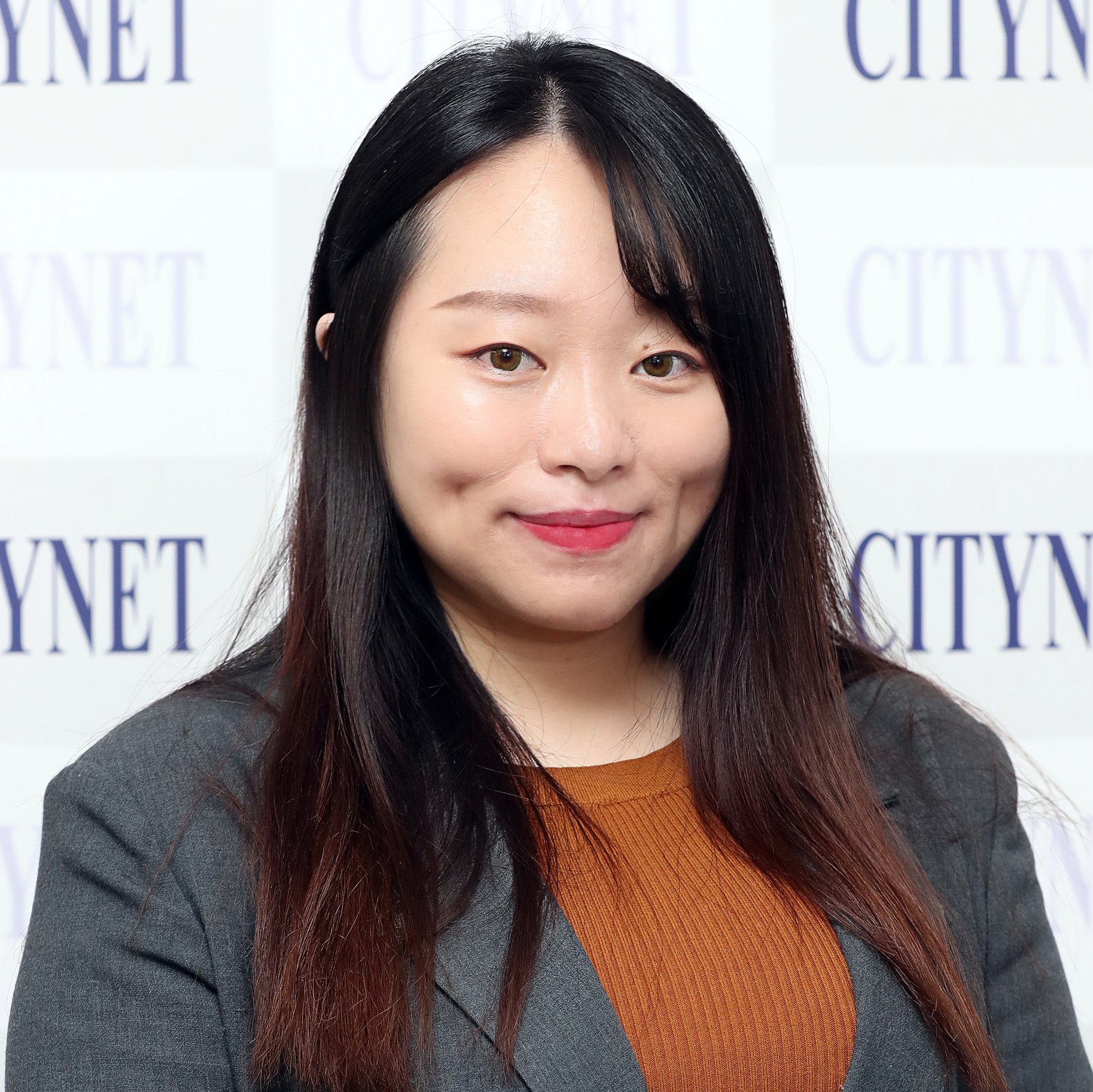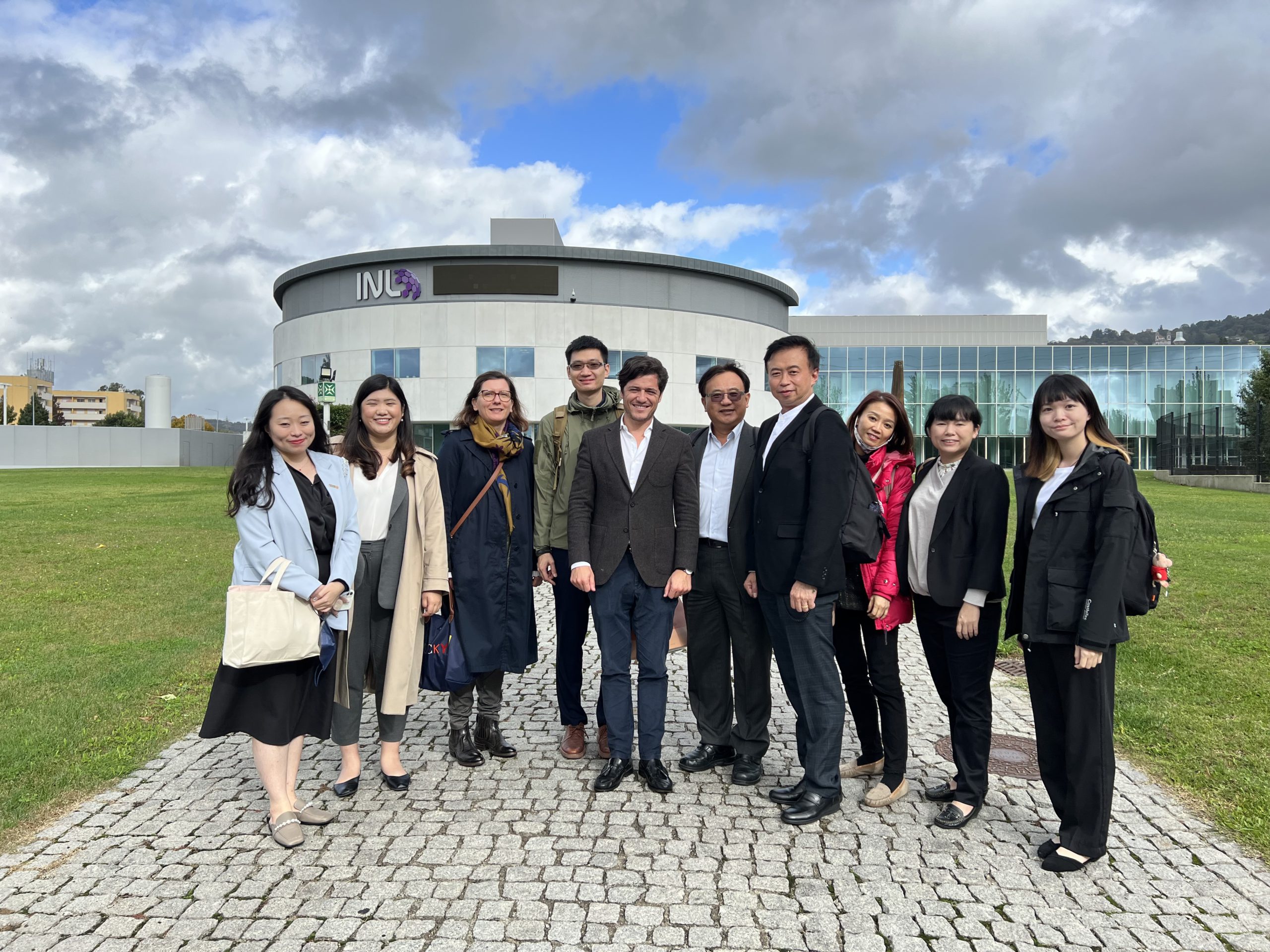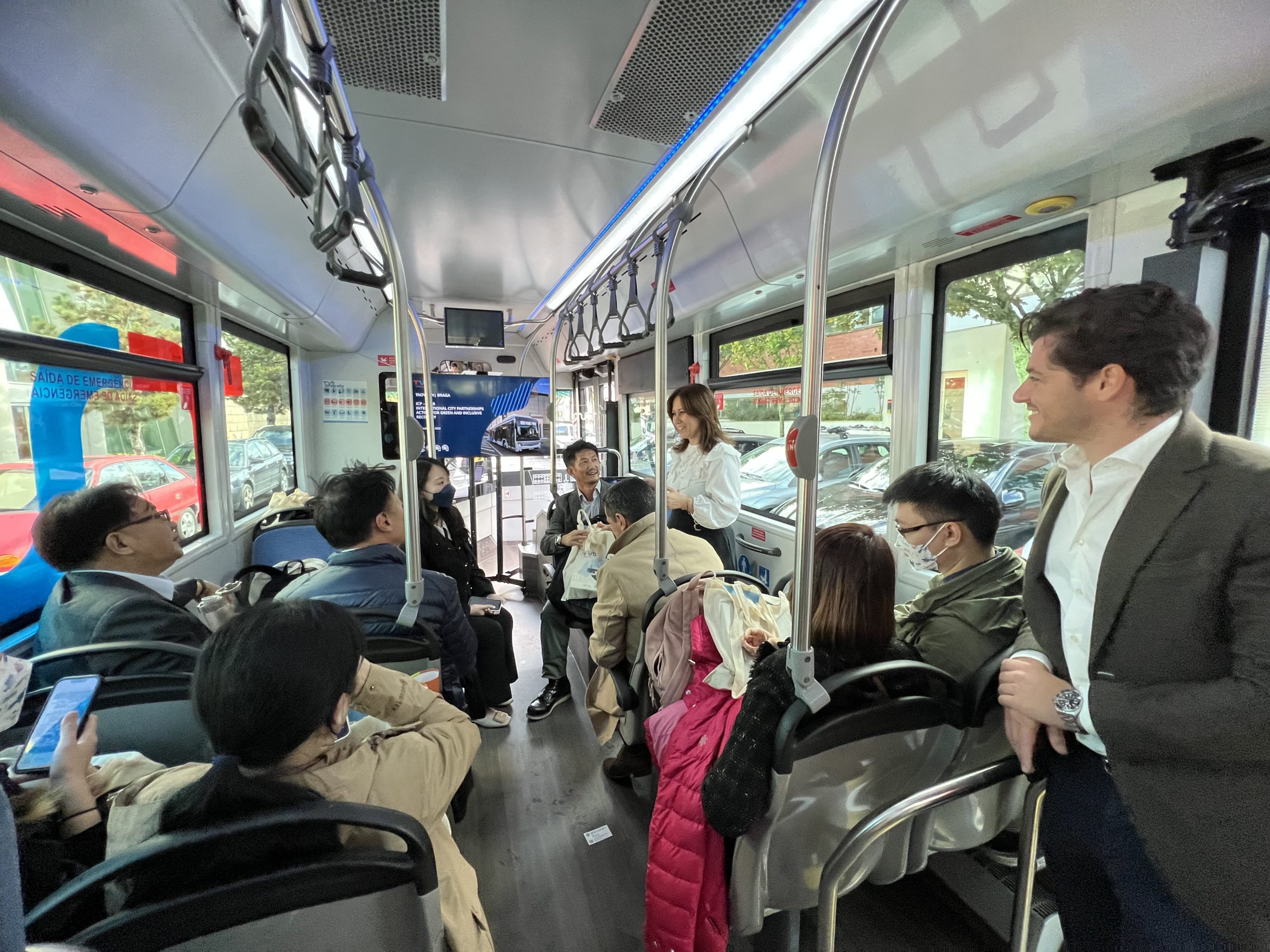From 24-28 October, Taoyuan visited Braga through the ICP-AGIR programme. This was the first visit between the cities and they came ready to discuss concrete actions that they could take through the partnership they have developed while participating in the programme.
The Taoyuan delegates visited Start-up Braga first, where Braga shared about how the innovation hub supports start-ups in all stages. They also introduced one of the start-ups that works with them, We Can Charge. The company’s mission is to increase the efficiency of charging networks in Braga, since 22% of charging stations are currently not being used. Through the platform created by We Can Charge, the efficiency of charging points can be assessed so that future installations can be implemented in the most effective locations, an important step in the scale up of EV charging points in the EU happening now. Taoyuan thought this project was very interesting and could be applied to shared bicycles and motorcycles to determine optimal locations.
Next, the delegates visited the International Iberian Nanotechnology Laboratory (INL), a unique facility that technically stands on international grounds. INL shared about their work and the fields that they research in (ex. Food, health, ICT, therapy, etc.), along with some of the projects that are being carried out.
The first day wrapped up with a formal reception from the Mayor, Mr. Ricardo Rio, in the headquarters of the Municipality of Braga. Mayor Rio expressed his hopes that the Taoyuan delegates would enjoy their stay in Braga.
The second day of the study visit launched with a visit to the University of Minho, one of the leading universities in Portugal. Taoyuan suggested that the University of Minho and Yuan Ze University connect and discuss cooperation in the field of sustainable mobility.
The delegates then got the exciting opportunity to take a ride in an electric bus operated by Transportes Urbanos de Braga (TUB), the transportation company responsible for public transportation in Braga. The electric bus served as a mobile meeting room and all delegates received their own customized transportation cards.
At the headquarters of TUB, delegates learned about some of TUB’s key systems, innovations, and the challenges that they are still facing regarding efficient charging, BRT, digital ticketing, and on-site parking.
In the afternoon, the delegates visited Centro Coordenador de Transportes de Braga (CCTB). There, it was spotlighted how Braga is a good example to highlight the change in thoughts about mobility and the shift in focus from automobile back to pedestrian. CCTB shared about the Bicification project, a gamification scheme designed to reward people who bike instead of using private cars.
On the last day of the study visit, the delegates visited the Mosteiro de Tibães, an old monastery that dates to the 12th century and the Sanctuary of Bom Jesus do Monte, a UNESCO World Heritage site that is connected to Braga via a funicular that operates solely on water balancing.
Afterwards, the delegates were toured around the city to learn more about its historical sites, especially its deep religious history. Previously, the church had held more power than even the government, and although this has now changed, the buildings from those times have been carefully preserved and repurposed.
Finally, to wrap up the study visit altogether, the delegates met for a final Cooperation Action Plan (CAP) session, where they recapped what they had seen on the visit and the areas in which they thought they could pursue further cooperation.
Braga will visit Taoyuan early next year, where the two cities plan to launch their cooperation into the actionable steps, looking at the topics they have already begun talking about during this first visit.

Hui Qian is a Senior Program Officer at CityNet, where she manages outreach and CityNet Services. Prior to joining CityNet, she worked at ICLEI East Asia Secretariat, with a focus on city-scale research and projects. Hui has a background of Sustainability Science and Greenhouse Gas Emissions Inventory Compilation. She obtained a Master of Science in International Cooperation Policy from Ritsumeikan Asia Pacific University (Japan) and a Master of Engineering in International Material Flow Management from Hochschule Trier (Germany). She is experienced in working under multicultural environment with multidisciplinary cooperation.





